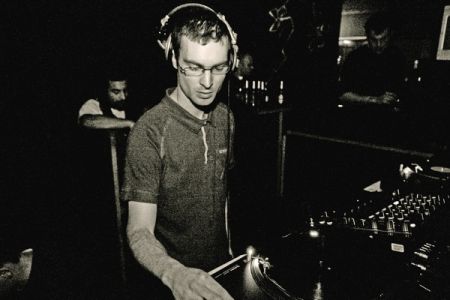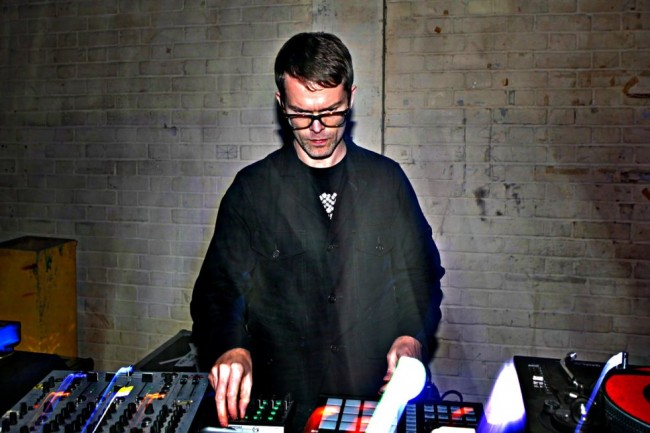The past three years have seen a sharp decline in the quality of the dubstep movement. Many of the pioneers have sold their souls to the EDM devil, while other artists have simply fizzled out, unable to make it in a genre where the new poster boy is Skrillex. While dubstep used to be considered a genre obsessed with bass weight, dimly lit rooms and griminess, it is now represented by over-produced screeches broadcast to thousands of clean-cut ecstasy filled teenagers.
it was Peverelist’s ‘Roll With The Punches’ that seemed to shine a new light onto an already booming genre
Although many people hadn’t heard of the subculture until 2010, those that knew about it before still believe its zenith years were in 2006 and 2007. Tracks like Loefah’s ‘Mud’, Digital Mystikz’ ‘Haunted’ and Peverelist’s ‘Roll With The Punches’ all showed us the true meaning of bass weight. The sheer subsonic forces these tracks emanated was immense. The best way to listen to them was in a dark basement surrounded by other sweaty club goers, while a Funktion-One sent vibrations through everyone’s skull. However, it was Peverelist’s ‘Roll With The Punches’ that seemed to shine a new light onto an already booming genre. Not only did it contain ear-rupturing bass but it was also beautifully melodic. As Boomcat put it in 2007, it’s a ‘track [which doesn’t] entirely make sense on first listen but which eventually plaster[s] itself to your mind with stubborn determination.’ If ‘Roll With The Punches’ didn’t make sense back in 2007, it most certainly makes sense now. Its elongated synths and rolling drums still make it a joy to listen to.
Shortly after the track was released it became very clear that Peverelist was a force to be reckoned with. After starting up his own Bristol based label in 2006 entitled Punch Drunk, Tom ‘Peverelist’ Ford set about releasing a series of singles from local artists along with his own production. The label played host to a number of amazing composers including RSD, Guido, Gemmy, Pinch and Gatekeeper. Ford also set about releasing more of his own production on Punch Drunk along with labels such as Apple Pips, Skull Disco, Hessle Audio and Honest Jon’s. Each time the production style would be different. It was no longer just about dubstep. Instead elements of techno and tribal rhythms were incorporated but all with the classic Peverelist flare.
Shortly after the track was released it became very clear that Peverelist was a force to be reckoned with
Then in 2011, Ford decided to start up a new label entitled Livity Sound, a label solely based around the music he and his friends were making at the time. I caught up Peverelist last week to see just how the iconic imprint began: “Livity Sound came about as I felt I needed to have a label which defined my own interests and ideas, combining all my influences from dub, jungle and techno… I’d been doing Punch Drunk for a few years but that was always meant to be a reflection of the Bristol scene and I wanted to do something that was more specifically me.”
“I felt I needed to have a label which defined my own interests and ideas, combining all my influences from dub, jungle and techno… something that was more specifically me”
However, this time he was not alone in the creation of the label: “My friend Joe [Kowton] was instrumental in Livity Sound’s creation. We chatted a lot about music at the time, about what we liked and didn’t like and started collaborating on tracks together, one of which became the first Livity Sound twelve inch.” The track was 2011’s “Beneath The Radar”. One side of the record containing a Kowton mix, the other side containing a newly named ‘Pev’ Mix. Both tracks caused a storm in clubs around the world. Shorty after, a new artist emerged from the label: “The third member, Asusu, was another Local DJ and producer who I had been in conversation with about working together.” Ford says that he felt Asusu’s “ideas were compatible with [his and Kowton’s], so he supplied the second release.” Thus the Livity Sound crew was born.

Once Livity Sound had been well established, the crew decided it was time to try a new venture: “As we started to release more records we decided to try to present them in a live show, something none of us had ever done before and it made sense. A new challenge.” Gaining influence from the sound system culture so associated with dub music, the group began touring the world. Along with the live show, the group also DJ separately, playing everything from reggae to garage, and techno to grime. The Livity Sound mentality seems to be one based around dance music culture from the early nineties which means that none of the collective even use CDs: “As far as DJing goes, we all play vinyl. I don’t have a problem with people playing CDs or Serato at all but for me playing vinyl is more immediate and fun and a little more chaotic. I think that adds to the vibe, especially when we are DJing back to back.” As for their live show: “The live set is a totally different thing to DJing, it’s meant to be quite upfront, intense and visceral. I think it stands alone as a separate experience.”
we decided to try to present them in a live show, something none of us had ever done before and it made sense. A new challenge…
Aside from running Livity Sound, Ford also runs a sister label entitled Dnuos ytiviL. The third release on the label is out on the 9th December and is by an artist called Batu, while the previous two 12″s were contributions from Manchester’s Alex Coulton. With Livity Sound still on the rise, Ford now speaks of Punch Drunk in a more nostalgic light, even though the label has remained functioning: “I started Punch Drunk in 2006. At that time, there was this new scene bubbling up in London based around what was loosely called dubstep and grime. It was a time when there was an anything goes attitude and a lot of Bristol producers were really influenced by the ideas in it, not wanting to imitate London, but [instead] seeing it as an opportunity to do their own music and to have an audience for it. So there was a lot of new music being made in Bristol and there weren’t really any labels through which it could come out, so I started Punch Drunk, just with the idea of it being a platform for Bristol artists to put out their music – however it sounded, as long as it had a kind of UK Soundsystem influence.”
It was a time when there was an anything goes attitude and a lot of Bristol producers were really influenced by the ideas in it
Ford’s passion for music is palpable. When asked about how 2006 differs to 2013, Ford finds it hard to put into words: “I don’t know really. I’m just getting on with it. I don’t know where the time goes to be honest, just always moving forwards and trying to be involved in things that I have an affinity with.”

Very few people in the electronic music scene manage to keep their production consistent, let alone DJ fantastically, perform live shows and run three labels. It’s pretty clear that Peverelist is one of the hardest working artists in underground music. When asked whether it all gets too much at times, he nonchalantly replies “a bit.” However, it’s obvious that times are still very tough. When asked about his opinion on the increase in independent music and vinyl sales he laughs and says: “How can I answer that question without sounding negative?” Apparently it’s not all sunshine and lollipops yet: “It’s harder and harder for independent labels. The media twist things a lot. I’ve worked in independent music for almost 15 years and I’ve seen it collapse first hand. Shops, labels, pressing plants and distributors all falling by the wayside and generations coming up that have never paid for music. It’s all very fragile still, I’m not sure people know how much its all held together by sellotape.” It is clear Ford’s thoughts on the matter are deeply rooted. Almost a love hate relationship has formed between him and the music industry over the years: “I’m not going to judge it though, it is what it is. It’s great that fans have access to so much music, much of it free in the form of downloadable mixes. I guess the downside is that there is less and less incentive for young and up and coming generations to start a record label and make/take music seriously, so I’m not quite sure where its all going. I guess it’s up to the younger generations to decide that.”
It’s all very fragile still, I’m not sure people know how much its all held together by sellotape
Ford’s knowledge of the music industry seems unrivalled in his age group. Few people have achieved quite as much as he has in so little time. Despite this, he still has his concerns about what the future might hold: “My main fear is that the independent infrastructure that did exist to enable young people to start their own labels and release and control their own music has been seriously eroded and there has been a big corporate power grab to replace it. I could talk about it all day but I guess it doesn’t get us anywhere.’ Our interview ends, yet Ford is determined to not leave on such a negative note. Instead he finishes with a plea to younger generations saying: “Make a tune. Make connections. Put a night on. Start a label. What are you waiting for?!” While he may not have shown us his trick, he sure has shown us that it’s achievable.
My main fear is that the independent infrastructure that did exist to enable young people to start their own labels and release and control their own music has been seriously eroded and there has been a big corporate power grab to replace it
Bonus: Pev’s Favourite Artists at the Minute
Joe, Elgato, Dreesvn, Anthony Naples, Some Truths, Cut Hands, Jay Daniel, Funkineven, Kassem Mosse/Mix Mup, Morphosis, Sotofett, Fiedel







